- Seller: James F (Contact)
- Location: Fresno, California
- Mileage: 0 Shown
- Chassis #: 883825
- Title Status: Missing
- Engine: 845 cc Inline-4
UPDATE – The seller let us know that the year is incorrect, so we’ve corrected the year. Additional photos have also been added to the gallery.
This 1959 Renault Dauphine demonstrates why we should never judge a book by its cover. It is a forlorn sight, sitting exposed to the elements. However, it is situated in a dry climate, which could mean rust has been limited to just the surface. The owner describes it as a roller, although it retains its original drivetrain. He feels it deserves a new home with someone who can recapture its lost youth or utilize it as an excellent source of parts for another build. Therefore, he has listed this Dauphine with us at Barn Finds Auctions without a reserve!
Renault introduced the Dauphine as its replacement for the 4CV in 1956. Its styling was more conventional than its predecessor, and over two million of these little cars plied roads across the planet before production ended in 1967. It received a positive reception when released onto the North American market and initially placed second to the Volkswagen Beetle in import sales. The first owner ordered this gem in Parchment Cream, although what remains of its paint is baked and sad. There is considerable visible surface corrosion, but it might not be as bad as the images suggest. While it has spent years sitting in a field, none of the corrosion has progressed to the point that there are holes in the steel.
Interestingly, these early cars didn’t suffer from rust problems as much as later examples. Healthy early sales meant that dealers struggled to meet buyer demands. However, after sales slumped, many cars spent months on docks, exposed to salt air. That was a recipe for disaster, which is why cars from the first couple of production years offer the best prospects as project candidates. Hopefully, that means the buyer can ignore their grinder and welder. The Renault retains its original glass and most of its trim. If potential buyers view this Dauphine purely as a donor for another project, it has much to offer in that role.
One area that is lacking in this Dauphie is the interior. It retains the driver’s seat and a rough gauge cluster. However, the remaining seats are gone, and any existing upholstered items have suffered at the hands of harsh UV rays. Finding secondhand replacements for these items won’t be impossible due to the healthy sales total, but patience may be required to complete the build. Several French companies supply reproduction trim and other components; some are willing to ship to North America. Therefore, that may be a viable alternative for a high-end restoration where perfection is crucial.
It is fascinating how many European manufacturers selected a rear-engine layout for their small and affordable models. Volkswagen is an obvious example with the Beetle, with Fiat following the same path with the 500. The Dauphine continued that trend, although its point of difference was that its 845cc four was water-cooled. It fed 32hp and 48 ft/lbs of torque to the road via a three-speed manual transmission. The company also offered a Gordini version that pushed engine power to a “dizzying” 37hp. These cars are a surprise packet because, with a curb weight of 1,398 lbs, they could hold their own in city traffic and cruise at 60mph on the open road. This Dauphine is mechanically complete, although the owner describes it as a roller that needs tires to move freely. However, if the winning bidder plans a faithful restoration, there may be parts that are fit for purpose once rebuilt.
Renault sold 28,000 Dauphines in North America in 1957, with the total skyrocketing to 57,000 in 1958 and 102,000 in 1959. However, the financial downturn that saw new car sales fall across the board hit the Dauphine hard. Volumes would drop markedly, while the rust problems caused by poor storage of unsold cars did damage from which it never recovered. As an early example, this Renault may have avoided those pitfalls, making it a prime target for restoration. If a slightly quirky and undoubtedly interesting project candidate has occupied your thoughts recently, bidding on this Dauphine could land you an affordable starting point!
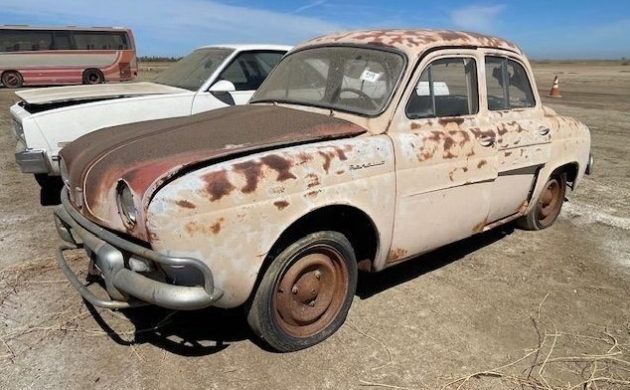
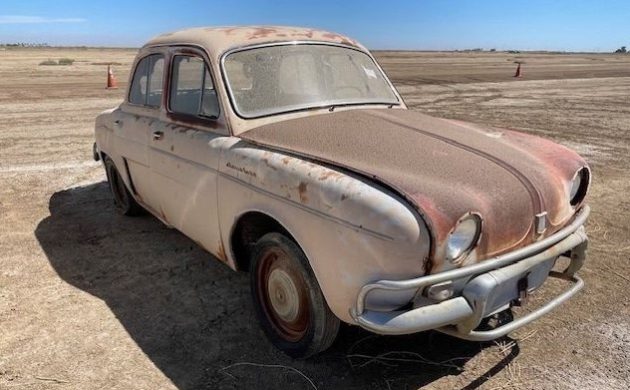
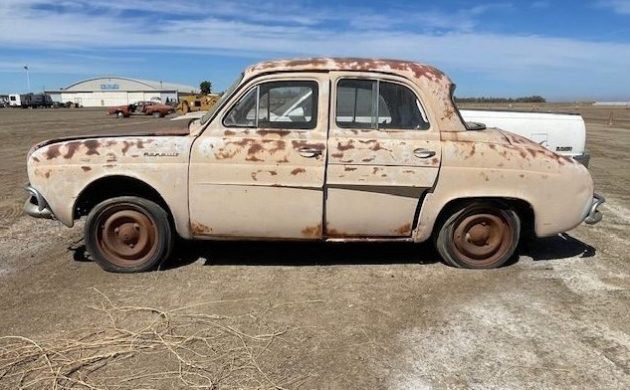
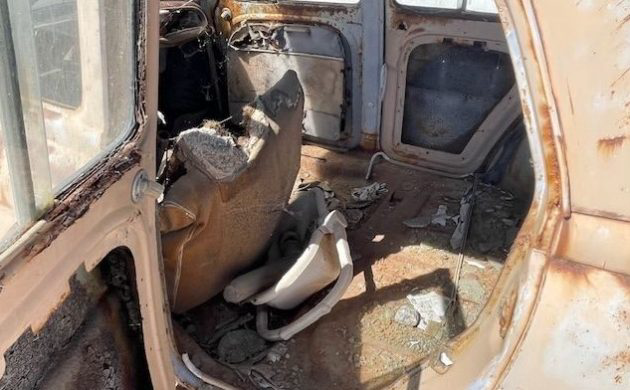
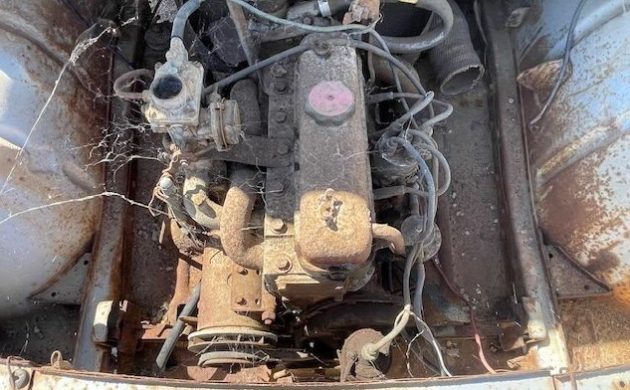
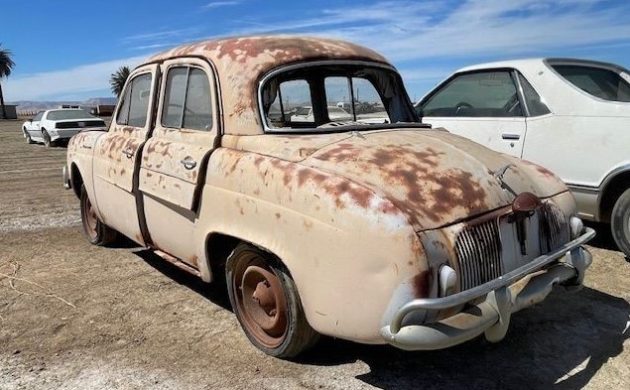
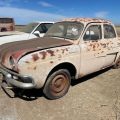
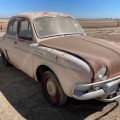
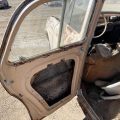
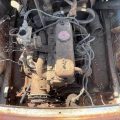
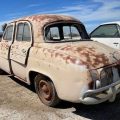

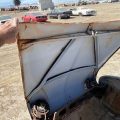
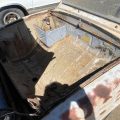
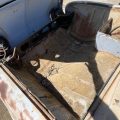
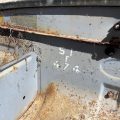
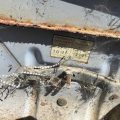
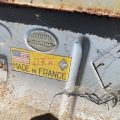
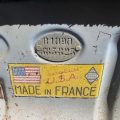
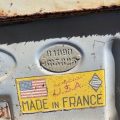
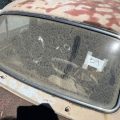
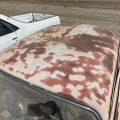
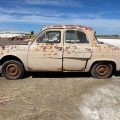
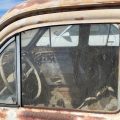
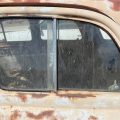
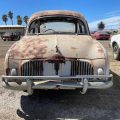
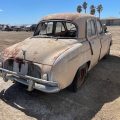
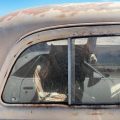
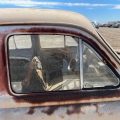
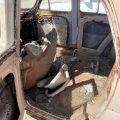
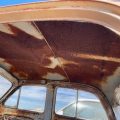
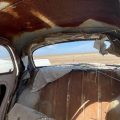
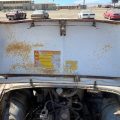
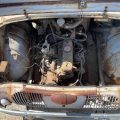
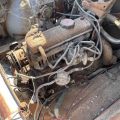
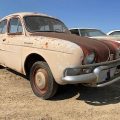

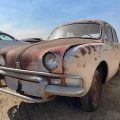
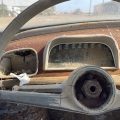
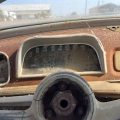
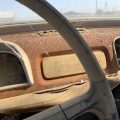

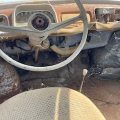
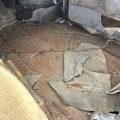
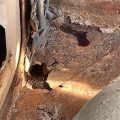
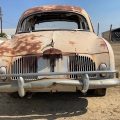
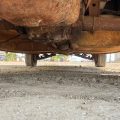
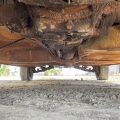
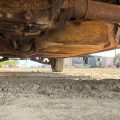
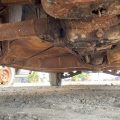
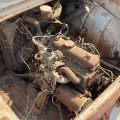
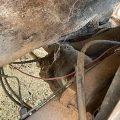
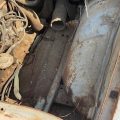
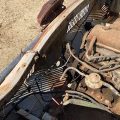
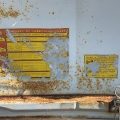
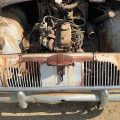
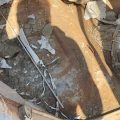
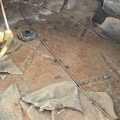
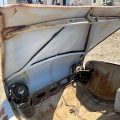
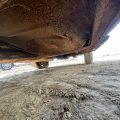
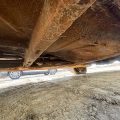
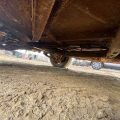
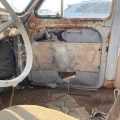
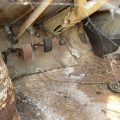
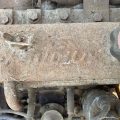




The seller is going to take additional photos of their Dauphine, specifically of the dash and underside. If you would like photos of any other areas, please let us know!
Josh, I am perplexed by your assertion that “none of the corrosion has progressed to the point that there are holes in the steel.” The photos in the gallery (maybe these were added after your description) clearly show holes in various places including what appear to be the footwells and fenders. I agree with one of the commentators that there is likely to be someone in the United States who has hoarded these cars. Guess we’ll find out when a caretaker of said collection passes away and their offspring flood the online auction houses with Dauphine cars and parts. Time will tell.
Little known fact:
Emanuele Nicosia at Pininfarina was inspired by the Renault Dauphine’s radiator placement when designing the Ferrari Testarossa.
Well maybe, at least it sure looks like it.
Thumb up.
Resisting the urge to say “put an LS in it”, I did chuckle at the “original drivetrain” comment. I’m not sure that “numbers matching” is a big consideration with this vehicle. My dad bought one of these out of a field for $100 when I was a kid. We finally got it to start by resorting to the hand crank (we were both covered in dirt and soot as a result). His only complaint? His golf clubs wouldn’t fit on the back seat, so he removed an inner door panel- the clubs extended into the door- problem solved. My favorite memory was almost getting hit by a taxiing B-52 emerging from the fog while we were crossing a taxiway enroute to his squadron’s facility.
Virtually no interior left, and no back glass. Gooood luck on finding any of those items! These simply didn’t last because of poor build quality. They started burning oil at 30K miles or less, and by the early 60s dealers wouldn’t take them in on trade–much like Yugos & `87 Hyundai Sonatas.
You meant Hyundai Excels. Sonatas came out a few years later.
Aw, geez, here come the waterworks,,,again. As mentioned, my 1st car was a 1959 4CV, and the old man had 1 or 2, “Renultz” as he called them,( he never called them Renough), and were actually quite plentiful. One must remember, imports were very limited in the 50s and early 60s. Only a handful to choose from, VW, Opel, Renault, Austin or Fiat. Asian cars were unheard of. Not sure who sold Renaults in the Midwest, I doubt a stand alone dealer, and some US car dealer must have sold them as a sideline, like Buick with Opel. Regardless, the old man had one, or 2, the guy across the alley had one, they popped up quite often and were actually better than the VW. More room, 4 doors, more power( cough), a real heater, of sorts, 2 tone horn, they were great cars. They were actually $200 cheaper( $1385) than a VW( $1560) and frankly, were just better cars, for the bold, to the tune of over 100,000 in the US in 1960. I’d have to say, without reservation, the Dauphine was probably the most unappreciated French car, and why so few today. You’d be hard pressed to wait for one that is in like new condition. A FB search within 500 miles of me, only turned up a set of hub caps for $100. Meaning, looks like a trip( on the internet) to France for anything. As kooky as this country is, I bet SOMEONE has a stash of these. Good luck finding them. Years ago, Jay Leno interviewed a man that brought a Dauphine to Pebble Beach. Clearly, out of place, Mr. Leno was actually more entertained by the Dauphine. He never thought he’d see one at Pebble Beach.
“100,000 in the US in 1960”
12 left in 2024.
I’d recreate a Henny Kilowatt with it
only with more modern charge controllers, motor, and battery pack
And as many of you know, my stepdad was an engineer on that project in the late ’50s. Henny provided the Renault bodies minus the engine and Eureka Williams company in Bloomington Illinois provided the charge controllers, battery packs, and the electric motors
which my stepdad was responsible for for the design, testing, and final
mounting in the vehicles. They tooled up for 200 cars and only sold less than 100 of them. And not all of them
went to electric companies either. ISU president Robert Bone bought one along with a few teachers who didn’t live that far from their schools.
While I know that most of these may
have been 3 speeds, I have seen a video on YouTube showing one with a
4-speed tranny instead. Any thoughts
on this?
Gordini model… 4 speed. Overall, looked the same as any other Dauphine.
I was a dealer mechanic when these were new. I still have my Dauphine tools… free to anyone that going to mess with one.
@bobH
I would be delighted to utilize your tools on my 1961 Dauphine. I’m not familiar with how to reach you on this platform? My car is featured on YouTube with my trials and tribulations.
My 18 year old sister married her 20 year old boyfriend in 1960 just as he mustered out of the army at Ft. Lewis,Wa. He used his money to buy a used Dauphine and they packed all their belongings into it and headed to his hometown in N. Dakota. Even as a 14 year old I was skeptical of their chances of making it that far, but they made it all the way.
nother of the momie’s kid-bus in the ‘60s.
Ours was early enuff to have the semaphores. She got 25K a yr in these, Renault 16 (or wuz it 10? both?), Simca 1000 (Maxwell Smart car), Fiat 128 (rally winner), & more – never the vedub bug tho (nota 4 dor).
Burned em up w/100 mi/d of local mini circles – her wrk, school, practice, band, scouts (16 hrs/d). But the shady tree was only a mi or 2 away and Mark (or his father B4 him) would get them back to us in 1/2 day.
Honest, low cost & a detailed mechanical lesson under the lift each repair ment hi trust and more than “just our mechanic”. Relationships are still more important to me than corporate encounters. Ol skol ways at our shop…
Had to smile when I saw this car. My father had one back in the late 60’s that he brought back from France in ’68 where he had been stationed. It was a zippy little car but he blew it up when he was coming home one time after being assigned to a post in Maine for a short duration. He came home with a yellow R10 that had been sitting on a dealer lot in Connecticut I believe it was. Paid $1995 cash for it brand new. The Dauphine and the R10 had the most comfortable seats you could imagine. He drove the R10 for all it was worth and traded it in 1973 for a Datsun pickup which ended up being tough as nails and succumbed to rust before any mechanical failure.
JC,
Even the cheapest French cars had great seats.
Thank you for the comments and interest in our Dauphine. As mentioned, we will be uploading more pictures of the dash and underside later today.
If anyone has any questions, feel free to reach out.
Saw a picture of one of these that on YouTube that someone made a gasser out of one it. It had a straight axle on the front end and was reported to have had a big Ford 6 cylinder (300cid?) engine stuffed/shoehorned in it.
The year has also been updated to 1959.
Please let me know if you have any questions about the car.
My first car was a 1960. In Cleveland, everything rusts with frightening speed. Oddly, the frame rusted but not the body.
In my ignorance, I couldn’t figure out why it NEVER needed oil, but used lots of antifreeze!!
Hi Jim, I believe the Dauphine was a unibody but rusted pretty much like any import. Not enough around to draw a conclusion. If there ever was a contest, I think the Asian cars rusted the quickest.
And, like an early Corvair, with no antisway bar in the rear, and wrongly inflated tires, they could suddenly, with a decent cross wind, on a dry flat staright road, swing around and end up facing traffic, hopefully on the shoulder. Ended up facing a Corvair on the shoulder one clear dry fall day, only about 3 feet front bumper to front bumper, and avoided a Dauphine which did the same thing in medium traffic on I -91 near Hartford. (Now, I drove the early Corvair, a 1960, with correct tire inflation, and never had a problem other than possible brain damage from the fumes from the gasoline heater under the frunk.)
yup, us 2.
Grandmaw willed us her ‘Monza’ that U could almost C the
exhaust comin out of the heat/cool vents. Open the door &
it definitely could B seen wafting down the rd from INSIDE
the cabin !
Were the Corvair gas heaters any more “fumey” than the forced air heaters from the engine bay that came as an option (and standard from ’61-on)?
I remember in California when they were new you saw LOTS of them. This one isn’t tooo bad , and I am pretty sure from the photos it is located at Eagle Field, Dos Palos, CA. Where BTY, they are having Vintage Drag Races this weekend. Be There or Be Square ! ! !
I went to a demolition derby in the early 70’s where they used a Dauphine as the soccer “ball”. Two teams sided up with the idea of pushing the Renault through the opponents to the other end of the roundy round track. When it was all said and done, there was no trace of the “ball” to found. Side note, one of the cars competing was a 56 Nomad.
My dad bought a 1957 Renault (Renult not Renough) in 1963 for $145. The exterior and interior looked good and the engine purred like a kitten. Unfortunately after driving it for a year or so, he knew there were problems when the steering column would come up into the interior when braking. Also when jacking up the car the doors would not close or open. And cranking was the only way to start it. Dad sold it to a guy for $75 who wanted the engine. Still, probably not a bad investment for a year’s worth of transportation.
I had two Dauphines while stationed in Germany and loved them both. The first one was wrecked by a buddy who “borrowed” the car. He replaced it with a new model with a sun roof.
All the statements above are true but here are a few more items to compare with the VW. Renault had a completely flat floor while VW had a tunnel running down the middle. Renault’s engine was water cooled (quieter, better heater). Renault’s fuel tank was under the car; VW was in the luggage compartment to get gas all over when you fueled up.
The spare tire on the Renault was cleverly concealed under the front of the car. You pulled a chain that released a catch on the panel that the front license plate is attached to and the panel falls down. The spare tire was then pulled out of its little pocket it resided in. VW’s spare had to share space with the gas tank and luggage under the front bonnet. Renault’s rear doors had child-proof latches. VW didn’t even have rear doors.
Guess what. I own a ’62 Dauphine, with the Gordini package. It is 90% original with no rust and only minor body dents. My plans were to restore it but at 81, it may not get done.
ONG! I haven’t seen one of these cripples in over 50 years. My family bought one of these (a 1957) as a second car back in 1965. What an absolute piece of junk. It was yellow which was fitting. Based on his experience with it my father swore he’d never buy another foreign car. I have owned Toyota’s and Honda’s since 1987.
No bids, no winner even at $1!
When I first met the woman who became my wife, she had a Dauphine. It was a cool car. Like every college kid at the time, she wanted a VW, but her Dad felt they were too expensive, and bought her the Dauphine. She had it when we got married. I really wanted to get a used MGB rdstr, so we sold off the Dauphine and bought a used “B”. Her dad never forgave me, and felt I was unappreciative. All these years later, I kind of miss the little bugger. Even ran across a shop manual for one the other day, and it has lots of history about Renaults and Dauphines.
Parts supply for the B would be far more accessible, even “back in the day.” The dealer network for BMC/British-Leyland was broader than the Renault one, at least in the period before AMC took control. As you are no doubt aware — These days, there isn’t much that can’t be purchased new or reproduced for an MGB!